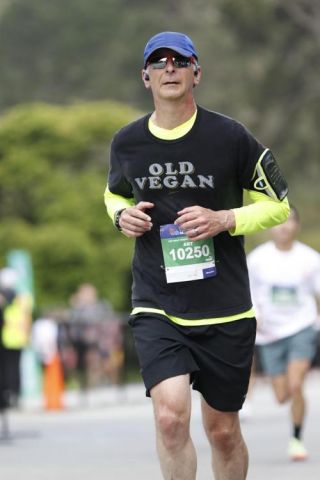Aging
Why You May Feel So Much Younger Than You Are
A phenomenon that doesn't end even in our 80s and 90s.
Posted August 9, 2023 Reviewed by Lybi Ma
Key points
- Subjective age is how old you feel.
- Research suggests that as you get older, your subjective age is lower than your actual age.
- This tendency increases across your life.
- The gap between subjective age and actual age has gotten larger over the past 60 years.

The year of your birth determines how old you are, and each time you hit another birthday, that age ticks up another notch. But that number on the birthday cards you get doesn’t always match how old you feel.
Ask around, and you’re likely to find that once people hit their 40s, they feel significantly younger than their actual age. Psychologists call the age you feel your subjective age.
There are some real benefits to feeling younger than you are. You’re likely to engage in more behaviors that preserve your health like eating well and exercising regularly if you feel younger than if you feel older. Of course, you may also engage in some risky behaviors if you feel young, so feeling younger is mostly (but not 100 percent) positive.
How common is it for people to feel younger than they are? Has that pattern changed over the years? This question was explored in a paper in the journal Psychological Science by Markus Wettstein, Hans-Werner Wahl, Johanna Drewelies, Suanne Wurm, Oliver Huxhold, Nilam Ram, and Denis Gerstorf.
They looked at data from a long-term study done in Germany that tested older adults (with a mean age of about 61) every few years starting in 1996. New people were added to the study in some of the subsequent years, giving a wide age range as well as people who were born in different eras. This design enabled the researchers to explore both whether there is a tendency for people to feel younger than they actually are, but also to see whether this tendency has changed over the years.
In addition to saying how old they felt, participants also provided information about their level of education, loneliness, and health.
Consistent with the anecdotes you have probably heard, there was a broad tendency for people over the age of 40 to feel younger than they actually are. On average, people felt about 11 percent younger than their actual age. A 45-year-old feels like they are about 40. In addition, this tendency was larger for women than for men. In addition, several other factors increased the gap between felt age and actual age. Having more education tended to make people feel younger. Being in good health tended to make people feel younger than they are. Being lonely had the opposite impact, decreasing the gap between felt age and actual age.
This tendency to feel younger than your age continues throughout your life. You might think that as you get close to the end of your life (particularly if you live into your 80s and 90s) that you would begin to feel closer to your actual age. The data from this study suggest that even people in their 80s and 90s feel substantially younger than they actually are.
One of the most interesting findings, though, was that the size of the gap between actual age and real age has gotten larger over time. The individuals in the study born before 1935 had the smallest gap between felt age and actual age. Those born between 1936 and 1951 had a somewhat larger gap, and those born after 1952 had the largest gap. There is a gradual tendency for people to feel increasingly younger as they age.
It is not clear what is causing this trend, and the study did not explore it in detail. However, there is a lot of cultural support in the modern era for older people to engage in activities that are normally associated with being younger. For example, media and social media highlight the fitness achievements of older adults. This tendency is also reflected in movies and television where older characters are not just treated as retirees but as active members of the community.
Indeed, I look back at my grandfather (born in 1915), who retired in his 50s in the early 1970s. He had settled into the routines of an old man by that age. His main daily activity was walking by the ocean with my grandmother. I am now older than he was when he retired. Just a few weeks ago, I did a half marathon and there were over 200 people in that race in their 50s who ran as well. Our culture encourages people to continue being active and engaging in activities that were largely reserved for younger people of previous generations.
Facebook/LinkedIn image: Krakenimages.com/Shutterstock
References
Wettstein, M., Wahl, H.-W., Drewelies, J., Wurm, S., Huxhold, O., Ram, N., & Gerstorf, D. (2023). Younger Than Ever? Subjective Age Is Becoming Younger and Remains More Stable in Middle-Age and Older Adults Today. Psychological Science, 34(6), 647–656.


